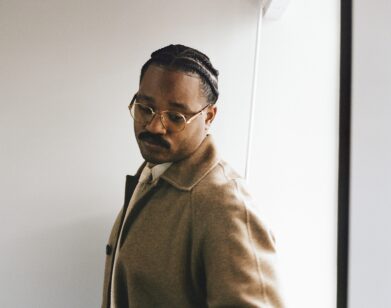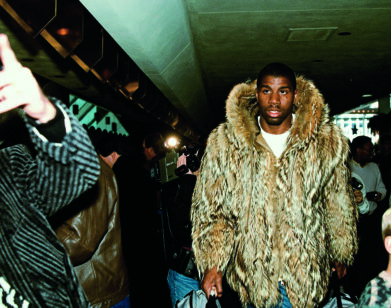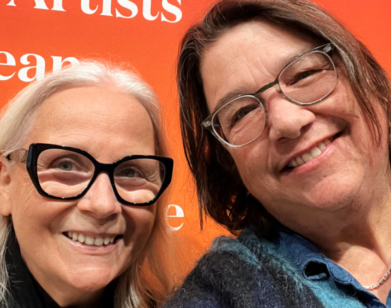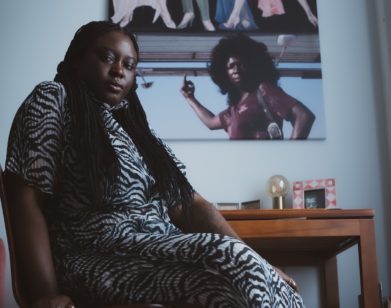Rough Draft
The NBA All-Star Carmelo Anthony’s New Memoir Is Brought to You by Wine and Cigars
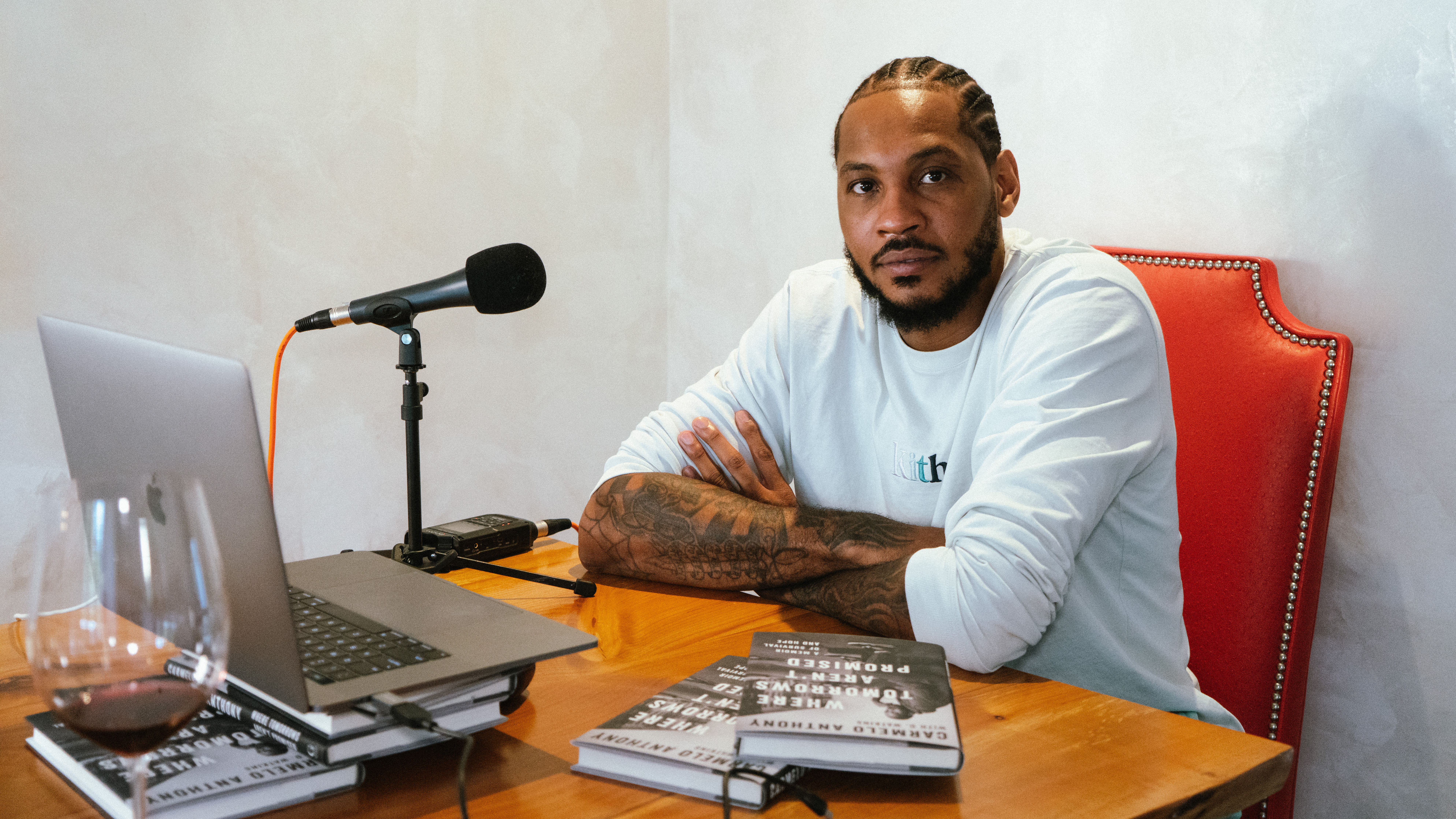
This is Rough Draft, in which our favorite writers get to the bottom of their own craft. From preferred writing drinks to whether or not you really need to carry a notebook, we find out all the ways they beat writer’s block and get it done.
Over his two decades-long career, Carmelo Anthony has broken almost every record made on the basketball court: he’s a ten-time NBA All-Star, four-time Olympian, and six-time All-NBA Team member. Just last month, Anthony signed with the Los Angeles Lakers, reuniting with his friend and fellow basketball legend LeBron James. But, what was it like to be Carmelo Anthony before the success and the excess? The athlete—and author— explores that question in his new memoir, Where Tomorrows Aren’t Promised: A Memoir of Survival and Hope, out today. The book, co-written with D. Watkins, follows Anthony’s rise from the Red Hook housing projects where he grew up to the fateful 2003 NBA draft where he joined the Denver Nuggets. Anthony fills the intervening years with an array of heartwarming anecdotes, from his JV basketball years, to his childhood friendship with the “high school phenom” LeBron James. To mark the book’s release, Anthony broke down his writing process for us—which includes a lot of wine and a few cigars.
———
JULIANA UKIOMOGBE: Describe your ideal writing atmosphere. What gets you in the mood?
CARMELO ANTHONY: It has to be nighttime. I found myself writing my memoir at night. While lying in bed, I’d really be able to think through these stories I wanted to tell and the truth that I wanted to share.
UKIOMOGBE: What are your go-to writing snacks?
ANTHONY: Wine.
UKIOMOGBE: Do you ever smoke or drink alcohol while you write?
ANTHONY: Oh, absolutely! Wine and cigars were my go-tos throughout this process. They get the creative juices flowing.
UKIOMOGBE: Do you keep a notebook or journal?
ANTHONY: No. If I have an idea, or a sentence comes to me, I just type it into the notes app on my phone.
UKIOMOGBE: Do you prefer handwriting or typing?
ANTHONY: I actually do like handwriting to be honest with you. Call me old-fashioned, but I still prefer it when I have the time to.
UKIOMOGBE: Whose writing do you always return to?
ANTHONY: I’m a big fan of Ta-Nehisi Coates. I love Nikki Giovanni, Maya Angelou, and the list goes on.
UKIOMOGBE: What’s your favorite book to reread?
ANTHONY: I would say The 48 Laws of Power. I’ve probably read it seven times at this point.
UKIOMOGBE: What books did you read as a kid/teen? Have your thoughts about the writers changed?
ANTHONY: I didn’t really read books as a teen like that. We didn’t have time growing up. It’s a theme that’s present in my memoir, but I just wasn’t exposed to that. I had to stay locked in and focused on other things to make it out of my circumstances growing up.
UKIOMOGBE: Do you read while you’re in the process of writing?
ANTHONY: I love to read when I’m in the process of writing, it helps jumpstart my creativity.
UKIOMOGBE: Which writers inform your current work the most?
ANTHONY: This was such a different process of telling my personal story in my memoir. This was really about my life and I had to look inward, and around at the important people that influenced me throughout my life.
UKIOMOGBE: Do you consider writing to be a spiritual practice?
ANTHONY: It can be. I haven’t gotten to that point of spirituality through writing yet, but I’m big on meditation and can definitely see how it can become a spiritual process.
UKIOMOGBE: What advice do you have for people who want to be better writers?
ANTHONY: You have to have a story to tell first, then you have to be authentic in your storytelling. When you’re telling a true story and a real story, you have to be as honest with yourself as possible.
UKIOMOGBE: What are some unconventional techniques you stand by?
ANTHONY: A second glass of wine. Everything gets better on the second glass.
UKIOMOGBE: Can great writing save the world?
ANTHONY: I don’t know about saving. Who’s to say? But I do know that great writing can shape the world into a better place.

